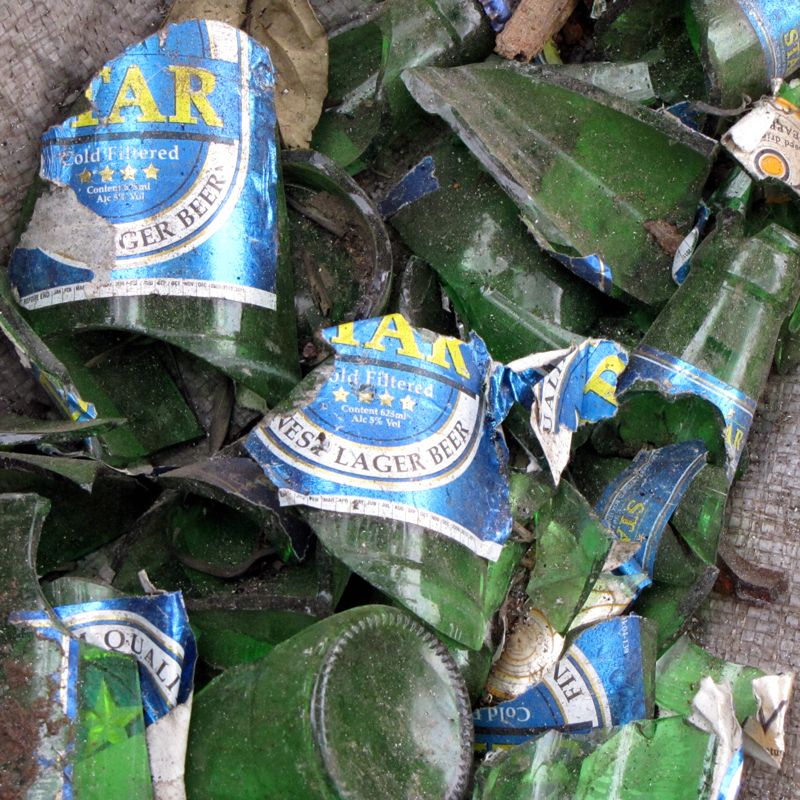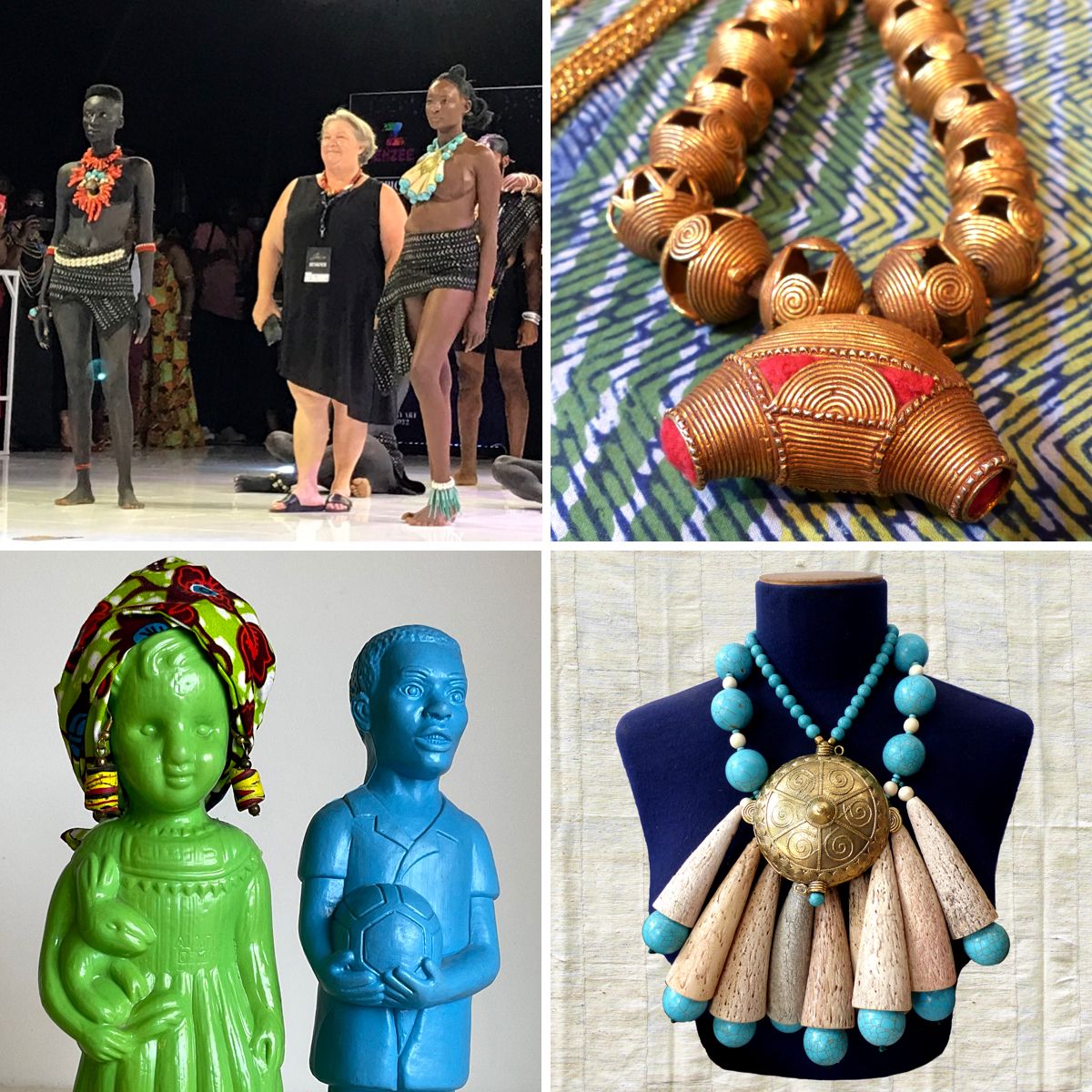Nothing gets wasted in Africa
In the developing world and in Africa in particular, anything and everything you might find rusting or rotting in the street has potential.
Are those broken Star beer bottles rubbish? Or are they the raw material of a booming village industry in the hills around Koforidua, Ghana?
For the artisan bead makers of the area, any broken bottle, jar, container or window can be ground into a powder and fired into beads.
These beads are a highly marketable product, one that earns money and feeds families. They are also an important element of local culture: worn, used and treasured.
The variety of designs is astounding. Some are replicas of the original trade beads that came to West Africa from Europe; others are new designs which the makers hope will appeal to a new market, both local and international.
 Star beer bottles will become recycled glass beads: near Koforidua, Ghana
Star beer bottles will become recycled glass beads: near Koforidua, GhanaKati Torda: Life, Beads and Stories
Beads are integral to Ghanaian culture.
Women, men and children all wear and use beads.
Beads are decorative. Beads are symbolic. Beads are powerful.
Just ask an extraordinary artist, creative spirit and storyteller - Kati Torda.
We've known and worked with Kati for many years. On our last trip to Ghana in March 2022, we recorded many of her stories for the Bead Society of Great Britain Journal.
You'll also meet Auntie Dei Dei and African Champion - the iconic clonette dolls - made in Ghana since the 1950s.
Words and images © Robert Irwin
Read and print story Kati Torda: Life, Beads and Stories
Courtesy of the Bead Society of Great Britain Journal, 2022
 Clockwise from top left: Kati Torda on stage at 2022 Jewellery Art Show, Accra. Ashanti Royal necklace highlights traditional lost wax brass beads. The Nourisher Amazon necklace features horn tips and reconstituted turquoise beads. Clonette dolls - Auntie Dei Dei and her brother African Champion - toys made in Ghana since the 1950s.
Clockwise from top left: Kati Torda on stage at 2022 Jewellery Art Show, Accra. Ashanti Royal necklace highlights traditional lost wax brass beads. The Nourisher Amazon necklace features horn tips and reconstituted turquoise beads. Clonette dolls - Auntie Dei Dei and her brother African Champion - toys made in Ghana since the 1950s.